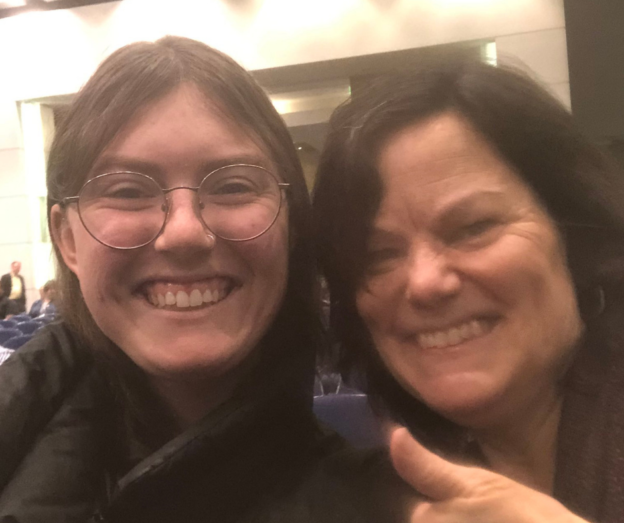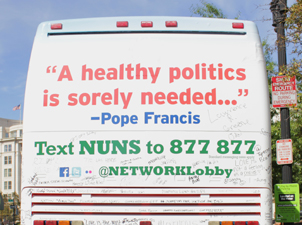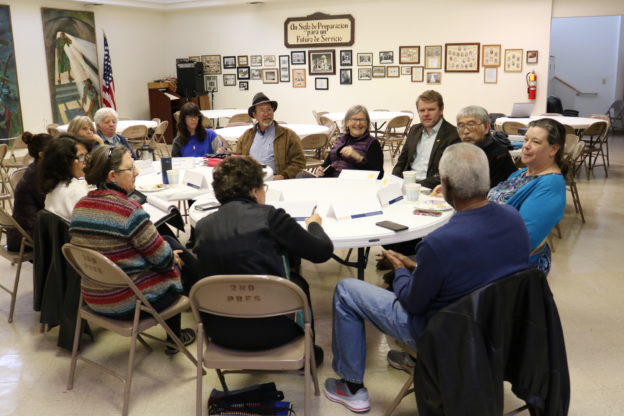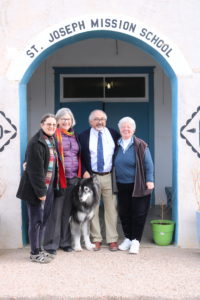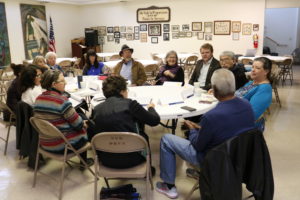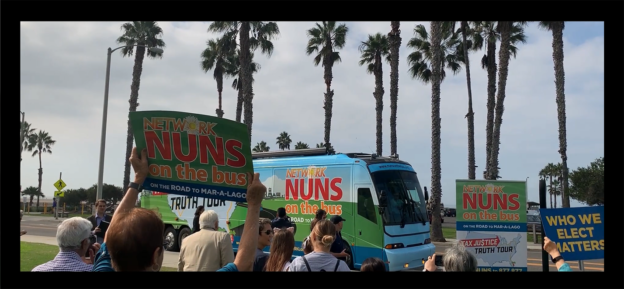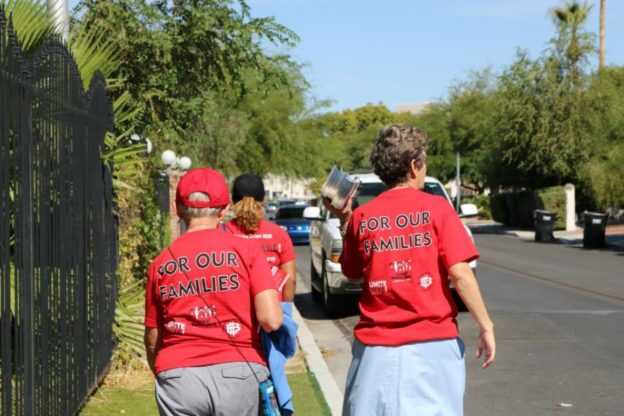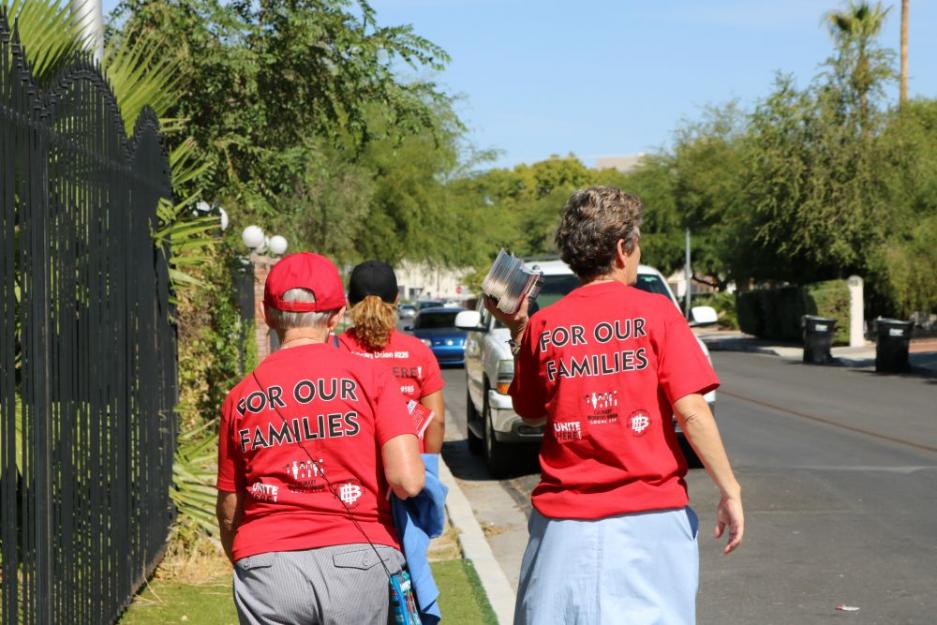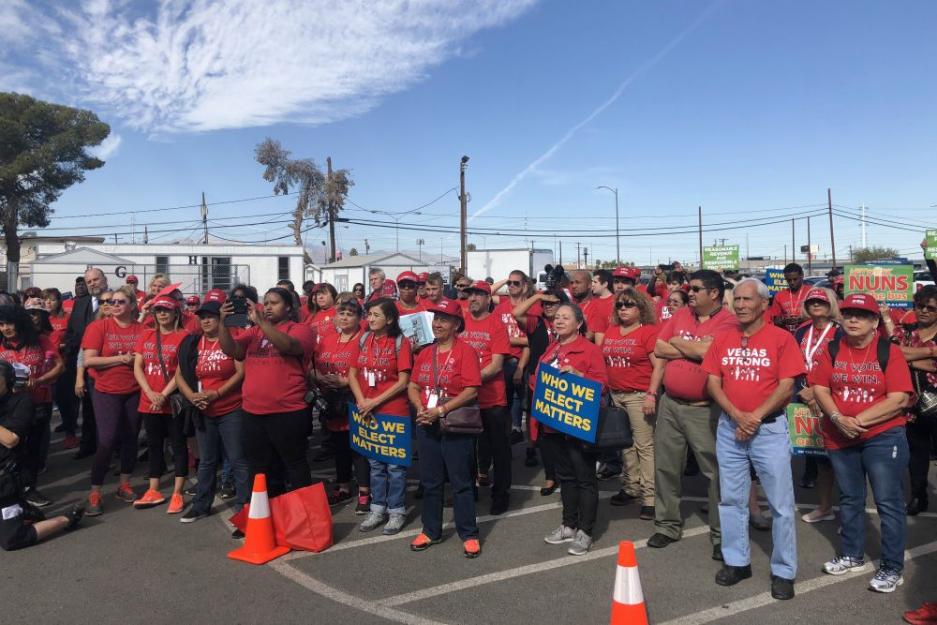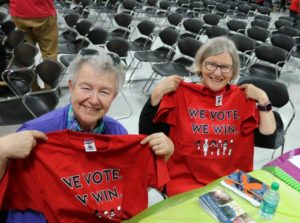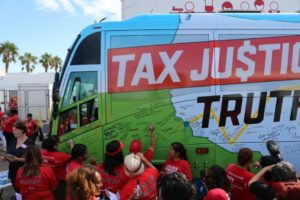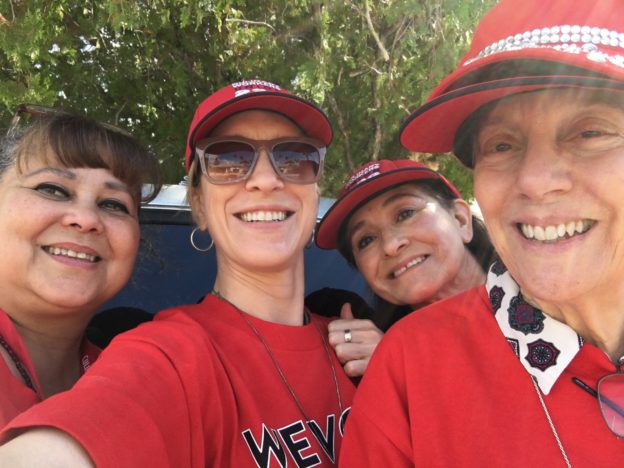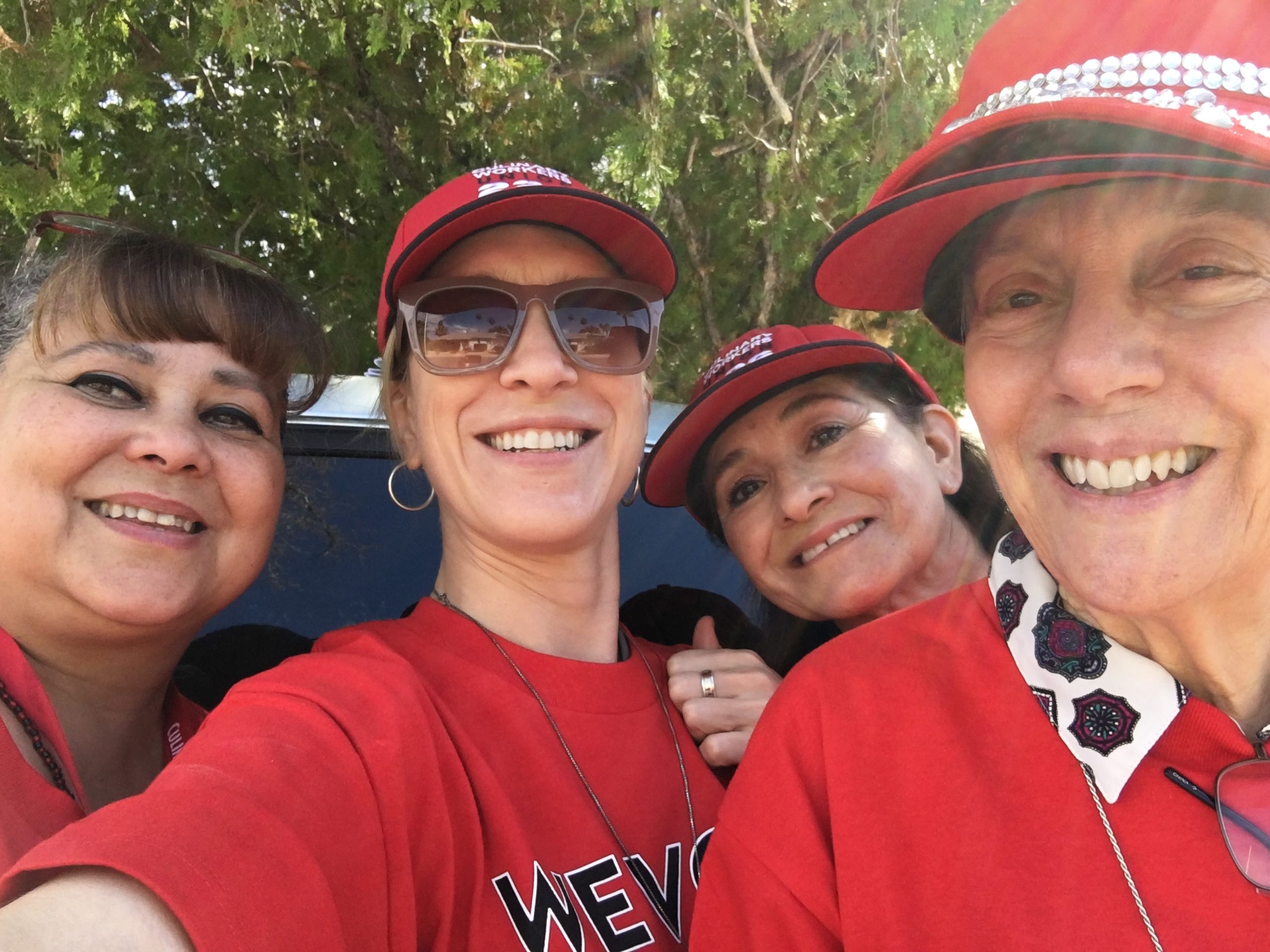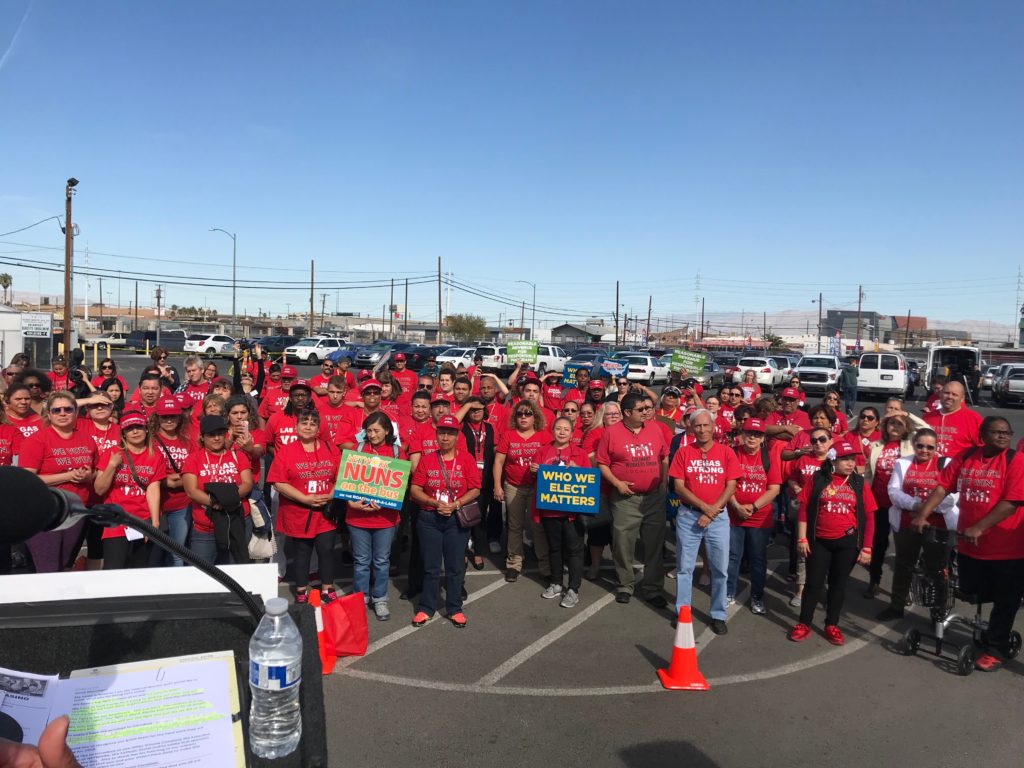
Work Needs to Pay; Work Needs to Work
By Marge Clark, BVM
May 1, 2015
No household with a person working fulltime should be living below the poverty threshold. Yet, that is the case for millions of Americans. Work needs to pay! The current federal minimum wage of $7.25 per hour provides a fulltime employee $15,080 annually. In 2014, the poverty threshold for a single person was $12,316; for a family of four it is over $24,000, leaving families in severe poverty although they are working fulltime. When the minimum wage went into effect, a household could meet all their needs – including mortgage payments. This is far from the case today.
The recently proposed rise in the minimum wage to $10.10 per hour would still leave millions of households in dire poverty. This would yield $21,008 annually – before taxes!
NETWORK strongly supports the newest proposal for raising the minimum wage to $12.00 per hour by 2020. Two added benefits are that it would apply to tip workers, and that the base would increase with inflation each year.
Work needs to work for workers, families and households. Additional legislation is critical for this: equal pay for equal work, paid sick days, paid leave, and reasonable accommodations for women who are pregnant and with young children.
Therefore, NETWORK strongly supports a package of bills:
- Raise the Wage Act: U.S. Senator Patty Murray (Wash.) and Representative Robert “Bobby” Scott (Va.) introduced the Raise the Wage Act, which would benefit 37.7 million workers—and the businesses that serve them—by gradually raising the minimum wage to $12 by 2020. (S.115)
- Healthy Families Act: U.S. Senator Patty Murray (Wash.) and Representative Rosa DeLauro (CT) introduced (Feb. 12, 2015) this bill allowing workers to earn paid sick days.
- Family and Medical Leave Act (FMLA): provides an important job protection for lower-wage workers, expected and provided in higher-paying jobs. This would allow a food service worker with the flu to stay home, protecting you and other customers.
- Pregnant Workers Fairness Act: Many states have legislation going beyond the Pregnancy Discrimination Act (1978); however, gaps continue in many states, and the protections afforded vary greatly. Federal legislation would be most assistive.
- Paycheck Fairness Act: Amends the portion of the Fair Labor Standards Act of 1938 known as theEqual Pay Act to revise remedies for, enforcement of, and exceptions to prohibitions against sex discrimination in the payment of wages.
The above areas are among pieces of legislation that support workers – for many, making it possible to work and to care for family.







